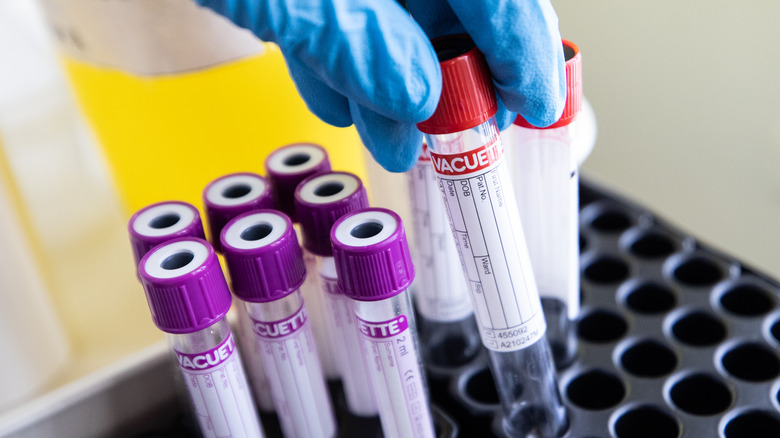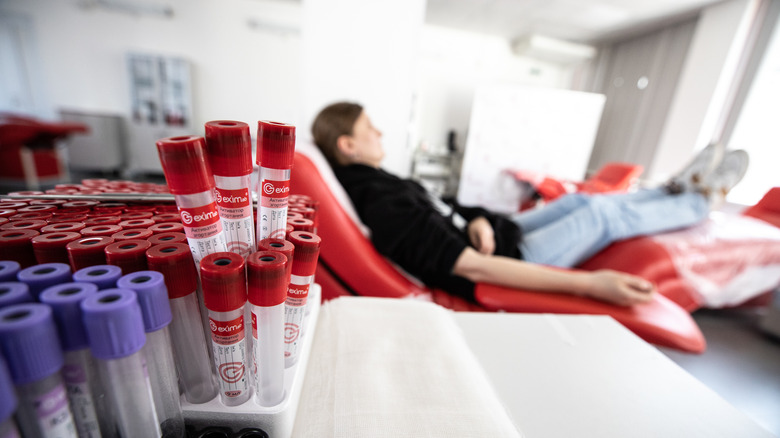Things You Should Never Do After Donating Blood
If you're like some people, you may have considered the prospect of donating blood at least once in your life — and if you've never thought about it before, there may be compelling reasons to think about it now. According to the Community Blood Center, approximately 4.5 million Americans are in need of a blood transfusion each year. Donating blood can save someone's life, and you could leave the donation clinic feeling satisfied, knowing that you made a significant impact on someone else. In fact, the Community Blood Center reports that blood donors decide to donate their blood primarily for the sake of helping others.
If you're feeling squeamish at the thought of blood and needles, you're not alone. Knowing what to expect when donating blood may help ease some of your worries. As stated by WebMD, you will first participate in a short physical exam, where your blood pressure, pulse, and temperature will be measured. A small amount of your blood will also be gathered to identify your blood type, and to check for diseases such as Syphilis and Hepatitis C virus.
You will then be prepped for donation, where you will donate about one pint of blood. As explained by the Community Blood Center, one pint of blood is able to save up to three lives. With that said, there are some activities to avoid soon after you have completed your blood donation.
What not to do after donating blood
After you have donated blood, it's best to give your body some well-deserved rest. As shared by WebMD, there are minimal side effects to donating blood. However, it's possible to feel lightheaded afterward or notice small amounts of blood in the area that you donated. If you notice bruising in the area, you can use an ice pack to relieve any pain.
To prevent any additional discomfort, it's advised not to exercise or engage in strenuous physical activity for at least 24 hours after you have donated blood. Heavy exertion on the body that is done too soon can contribute to uncomfortable feelings of nausea, dizziness, and pain in those who have donated blood, reports South Louisiana Medical Associates (SLMA).
It's also recommended that donors steer clear of drinking alcohol for about a day after donating, according to SLMA. Shortly after donation, the effects of alcohol can be more intense because there is less blood in your system available to dilute it. In order to recover your blood volume and avoid dehydration after donating, it's essential to drink plenty of water instead.
In addition, it's recommended not to smoke for at least a few hours after donating blood, as smoking could increase dizziness and the risk of falling. As there is an ongoing need for donors, SLMA stresses the importance of spreading the word about blood donation after you have donated blood.


